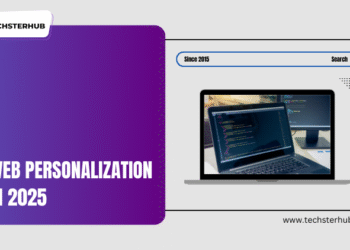In today’s competitive market, efficiency is a must for B2B marketing companies. As customers’ needs to get things done faster, better, and cheaper are growing, companies are turning to Lean management concepts to help reduce waste.
Lean management in B2B marketing companies not only improves productivity but also promotes an atmosphere of continuous improvement and creativity. Let’s find out more in this blog on how Lean management impacts B2B marketing companies and how to implement it successfully.
Introduction: What Is Lean Management and Why Should B2B Marketing Companies Pay Attention to It?
Lean management originally created in manufacturing has proved to be a good solution for increasing the efficiency of operations in industries such as B2B marketing agencies. Fundamentally, Lean is about cutting costs, streamlining operations and adding value to the client. It is a philosophy of management where workflow is simplified, unnecessary costs are minimised, and the culture is continuously improving.
For B2B marketers working on a constant deadline where projects, campaigns and client expectations can get to be too many, Lean management can make the difference between mediocrity and stellar results. Marketing companies can make internal process more efficient, customer experiences more positive and ROI more effective with Lean approaches.
Here in this blog, we’ll go over what Lean management can do to enhance the productivity of B2B marketing companies, what it offers and what may hinder a company from implementing Lean.
What Lean Management Has to Offer for Business Process Improvement in B2B Marketing Companies?
There are several benefits that lean management offers B2B marketing companies, namely, the operational efficiency. Let’s discuss some of the biggest Lean advantages you can get:
1. Streamlined Processes and Increased Productivity
This is the whole point of Lean management you should cut all the waste that’s non-profitable for the client or the company. For a B2B marketing company, that might mean repeated meetings, redundant reviews, or repetitive manual labour. Marketing agencies can identify and eliminate these ugliness’s in order to cut costs and increase productivity.
For instance, with Lean methods such as Value Stream Mapping (VSM), B2B marketing companies are able to map the whole project lifecycle, from start to finish. This process map can be used to pinpoint bottlenecks, inefficiencies or work that delays the project. Once identified, these inefficiencies can be eliminated or redistributed to generate value, which means faster project deliverables and higher productivity.
2. Cost Reduction
The cost-saving benefits of Lean management are many and one of them is eliminating waste. The definition of waste in a B2B marketing company is many: not working what you’re paying for, too much overtime, excess overhead, redundant tasks. With the use of Lean, companies can allocate their resources effectively, avoid rework and improve the flow of tasks which saves money.
And Lean management also fosters cross-functional cooperation which usually leads to better sharing of resources and less outsourcing. With this automated model, marketing companies can keep their costs down without compromising or diminishing quality of service.
3. Enhanced Client Satisfaction
In B2B marketing, customer experience matters. Customers expect top-tier service, on-time execution, and campaign performance. The Lean management allows companies to live up to these standards by making sure the processes are effective, messages are direct, and the work is prioritized according to client needs.
The use of Lean methods like continuous feedback loops, iterative testing, and constant improvement improves the speed of response, the quality of the work and the ability to be more adaptive to client requirements. Marketing agencies can be more value to clients, creating a better client relationship, repeat business, and customer satisfaction through Lean practices.
4. Improved Employee Morale and Engagement
Lean management creates a culture of respect and cooperation that can have a huge impact on employee morale. Marketing firms that implement Lean methods make employees actively participate in process improvements and they get to be the ones to find the processes where there are inefficiencies. This kind of engagement with decisions can help you feel more engaged in the job and feel more invested in the success of the company.
In addition, Lean management helps you to eliminate responsibilities which aren’t needed, thus increasing the worker’s work-life balance. Remove bottlenecks and streamline workflow so employees are empowered to work strategically and creatively which in turn leads to engagement and productivity.
5. Continuous Improvement and Innovation
Lean management is not a one-time solution, it’s a philosophy of continuous improvement. Which is why B2B marketing agencies are always searching for processes, client results, and waste reduction. Because Lean focuses on small incremental wins, not large, radical disruptions, it creates an innovation mindset throughout the company.
By implementing Lean practices like Kaizen (continuous improvement), organizations can create a culture in which people will never stop learning new skills and process improvement. This constant improvement can create better solutions, better advertising, and a more efficient company in general.
How to Use Lean Management in B2B Marketing Agencies?
The advantages of Lean management are obvious, but integrating these principles into a B2B marketing company isn’t. The following are the most important steps that any business can follow in order to take Lean management and drive business efficiency.
1. Identify and Map Current Processes
In implementing Lean management, the first thing to do is find and visualize current workflows. And that means documenting every step of the way, from client onboarding to project completion. Defining processes lets B2B marketing agencies identify where processes are not running efficiently, duplicated, or are behind.
Such methods as Value Stream Mapping (VSM) work very well for representing these activities. VSM enables teams to see where waste is occurring and how best to optimise the flow that underlies Lean improvements.
2. Eliminate Waste and Optimize Resources
When workflows are defined, B2B marketing companies should optimize waste and spend. That’s a matter of auditing each phase of the process to discover where time, money or effort is being misdirected. Whether it is eliminating unused meetings, streamlining the approval workflow or automating routine tasks, Lean encourages removing activities that are not value-added.
Gleichzeitig, companies need to focus on optimizing the use of resources. That means making sure the right people are performing the right tasks at the right time and technology and tools are well used.
3. Develop a Culture of Collaborative and Employee Engagement.
Another of the principles of Lean management is involving the employees from every level in the process improvement. For B2B marketing companies, that means having staff come up with inefficiencies, improvements and cross-departmental partnerships. Whether that’s via weekly team gatherings, ideas sessions or idea-sharing platforms, companies need to open up opportunities for employees to be part of Lean.
This team environment is not only an excellent way to optimize processes, but also for employee buy-in and satisfaction. If people know they are being heard, they are going to be involved and committed to making things better.
4. Be a Technology Partner for Lean Projects.
The right technology can do wonders for Lean initiatives at B2B marketing agencies. Project management tools, CRM systems and automation software can automate processes and increase collaboration. Marketing automation tools, for instance, automate tasks like scheduling emails, posting to social media or reporting on data and free up time for strategic work.
With the help of technology, organizations can be sure that Lean principles are carried out in all aspects of processes and teams have the right tools to thrive.
5. Measure Success and Continuously Improve
B2B marketing agencies have to monitor success based on key performance indicators (KPIs) like project completion times, client satisfaction levels, and cost savings to be sure Lean management is doing the right thing. Having an eye on these numbers regularly will allow you to see where we can go and keep Lean initiatives relevant to the company’s strategy.
Lean management is never finished, so companies should continue to re-examine processes. If marketers keep their eye on continual improvement, then they can adapt to the market and deliver better results for their clients.
Conclusion: The Long-Term Effect of Lean Management on B2B Marketing Companies.
Lean management in B2B marketing companies has the ability to impact the bottom line. In this way, businesses can improve their client’s outcomes and streamline their operations by automating, optimizing and increasing costs. Lean management principles can keep companies competitive in an ever-changing market and stay ahead of the game for a long time.
Lean is a way of thinking, not a process for B2B marketing companies in 2025 and beyond. Using Lean management, companies can develop better, more effective teams that can evolve with the needs of their clients and the marketplace.











